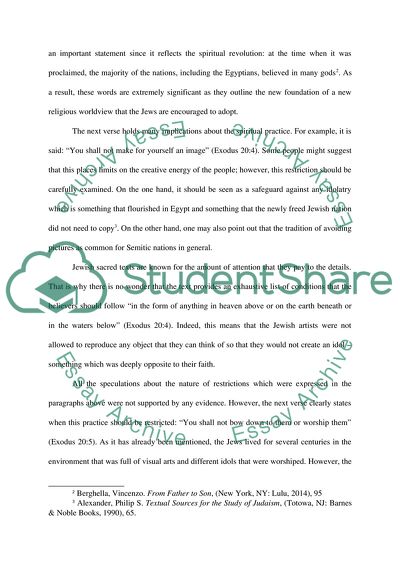Cite this document
(Exodus: The Study of Judaism Report Example | Topics and Well Written Essays - 1500 words, n.d.)
Exodus: The Study of Judaism Report Example | Topics and Well Written Essays - 1500 words. https://studentshare.org/religion-and-theology/1868444-exodus-201-7
Exodus: The Study of Judaism Report Example | Topics and Well Written Essays - 1500 words. https://studentshare.org/religion-and-theology/1868444-exodus-201-7
(Exodus: The Study of Judaism Report Example | Topics and Well Written Essays - 1500 Words)
Exodus: The Study of Judaism Report Example | Topics and Well Written Essays - 1500 Words. https://studentshare.org/religion-and-theology/1868444-exodus-201-7.
Exodus: The Study of Judaism Report Example | Topics and Well Written Essays - 1500 Words. https://studentshare.org/religion-and-theology/1868444-exodus-201-7.
“Exodus: The Study of Judaism Report Example | Topics and Well Written Essays - 1500 Words”. https://studentshare.org/religion-and-theology/1868444-exodus-201-7.


